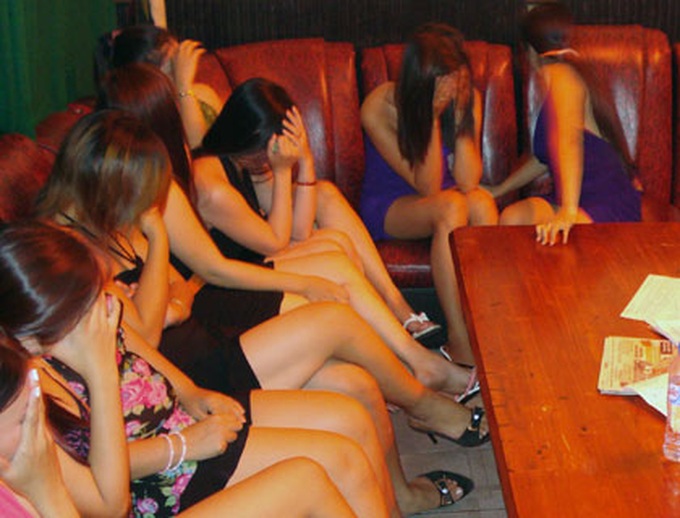
“Red light district” not suitable for Vietnam, according to one expert
Le Duc Hien, Deputy Director of the Ministry of Labour, Invalid and Social Affairs' (MoLISA) Department of Social Evils Prevention made this comment after authorities in HCM City proposed grouping suspect institutions into a certain place for better management.
Hien worried that, if such an area were to be formed, there would be unanticipated consequences in terms of human trafficking, money laundering and drug addiction.
HCM City’s municipal government made the proposal after the National Assembly passed the Law on Handling Administrative Violations that will take effect on July 1, 2013. As a result, sex workers will no longer be taken to education centres.
The proposal stirred public concern when statistics reported that there are currently at least 15,000 sex workers in HCM City.
According to Hien, this is not the first time that such a proposal was made. Some have even proposed setting up such this “sensitive area" in the tourist districts.
“The Government has not legally recognised prostitution as legal, and cannot do so because of the social consequences, some of which can't be foreseen," Hien said.
Le Van Quy, Deputy Director of HCM City Department of Social Evils Prevention, said that the city never planned to set up a “red light district".
“At a recent meeting, the municipal Department of Labour, Invalid and Social Affairs recommended that the city government seek approval from the central government to group “sensitive” service institutions in an area, and issue a regulation would deal with such professions and businesses that may deal in the sex trade,” Quy noted.
Quy's assessment of the situation was that more management was needed over the industry in order to keep a rising threat under control, adding that, "This does not necessarily mean the setting up of a “red light” area to legalise prostitution,” he commented.
Nguyen Thi Hue, from the HCM City Committee for HIV/AIDS Prevention said, “In Thailand even though “red light districts" have been established nationwide, the country has yet to legalise prostitution. Still, prostitutes there are required to have health check-ups regularly and those who are diagnosed with certain diseases must pursue treatment before resuming their work. However, such a system would be difficult to realise in Vietnam because of cultural differences."
A recent study by the MoLISA’s Department of Social Evils Prevention showed that prostitution tends to develop widely for recent years.
According to preliminary statistics, the country currently has over 73,000 “sensitive” service institutions with more than 48,000 female workers.
Recent busts of prostitution rings uncovered models, singers and students who have been working in the sex trade.
